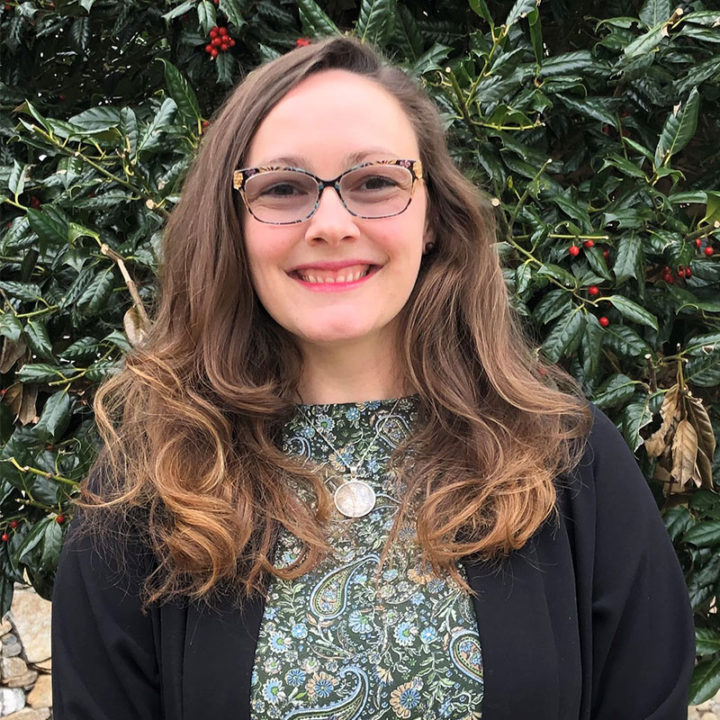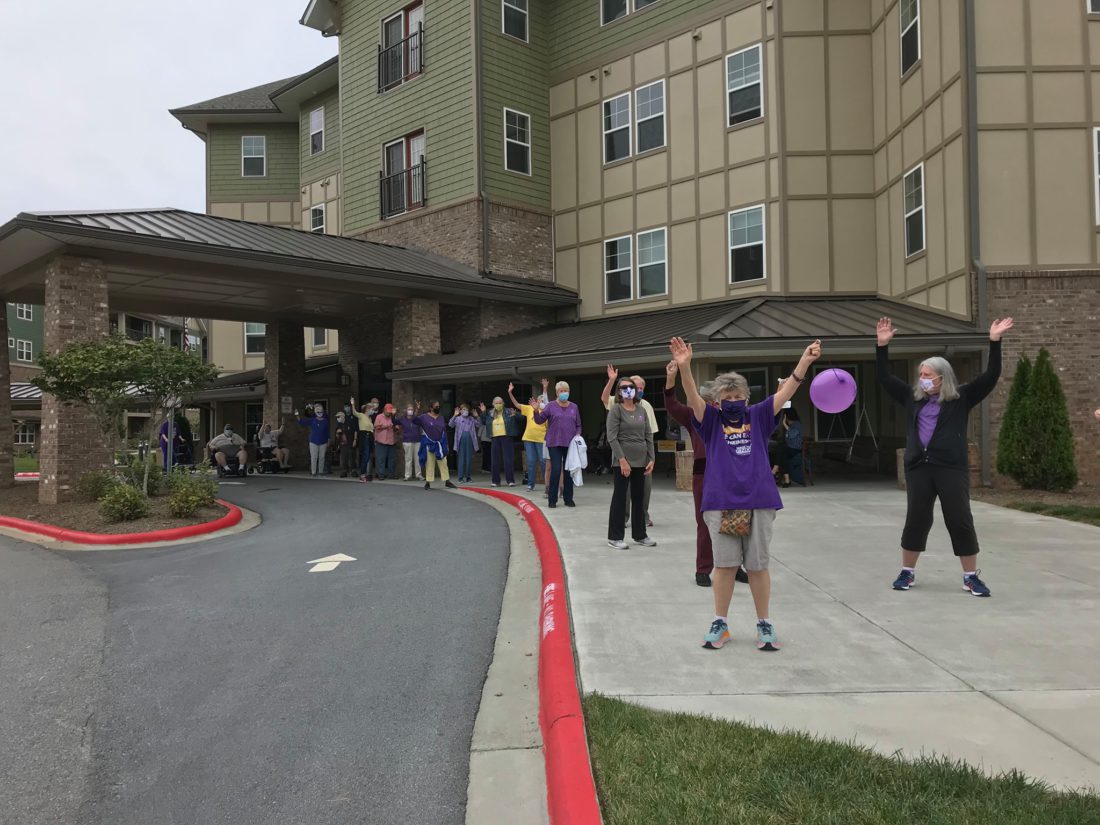In January 2020, Heather Bauer took over as the executive director at the Council on Aging of Buncombe County, a nonprofit that assists individuals and families with the challenges of growing older. At the time, Bauer’s goals included closing gaps in services, improving access to care and reducing stigma and ageist stereotypes. But as with all 2020 plans, the council had to pivot in response to the COVID-19 pandemic.
“I did have to table some of the initial plans and strategies,” Bauer says. “Constructs were being deconstructed and reconstructed rapidly [in response to evolving health guidelines]. Life is what happens when you are busy making other plans.”
Over the last two years, Bauer continues, older residents have been among the hardest hit by the crisis. Safety guidelines, she says, “have increased social isolation, economic burdens and loneliness,” on top of the many health risks and concerns that have left older community members particularly vulnerable to the virus.
Yet amid these challenging times, the Council on Aging, as well as several other local agencies working with the area’s older population, say they have found ways to address client needs and expand their reach.
All of which, Bauer continues, is imperative given the area’s increasing number of older residents. According to the Buncombe County Aging Plan, Buncombe County has one of the fastest-growing adult populations in the state, with 20.6% of its residents age 65 years or older — nearly 4 percentage points higher than the statewide average of 16.8%.
Locally, that number is expected to climb to 23.5% by 2030. And with it, stresses Bauer, services that her nonprofit and other area agencies provide will continue to be essential to the overall health of the region.
Growing hunger
Food insecurity, says Deebie Sprouse, executive director of Meals on Wheels of Asheville and Buncombe County, is among the growing concerns for the region’s older population. Over the last two years, she notes, her organization has seen a significant uptick in clients depending on her nonprofit’s services.
Prior to the pandemic, Meals on Wheels worked with around 800 seniors, serving 100,000 meals per year. In 2021, that number increased to 940 clients, resulting in approximately 124,000 meals served.
Similarly, Bauer says the Council on Aging has expanded its homebound food delivery program. The organization has tripled its output of shelf-stable products and doubled its monthly delivery services.
“Social Security is still the primary source of income for people over the age of 65,” Bauer explains. “These fixed incomes even during ‘normal times’ often create challenges and sometimes force individuals to choose between paying for food, medication and utilities.”
The pandemic, adds Sprouse, “has brought to light how fragile our food system really is and how quickly food insecurity can spread throughout a community.”
Perils of isolation
The global health crisis has also brought increased awareness about the negative impacts of isolation. According to the National Institute on Aging, research has linked solitude and loneliness to higher risks of heart disease, high blood pressure, anxiety, depression and cognitive decline, including Alzheimer’s disease among older adults.

Early in the pandemic, Sprouse notes, Meals on Wheels had to pivot to no-contact delivery. While the decision helped reduce the risk of exposure to the virus, it also eliminated personal interactions among staff, volunteers and clients. For many of the older residents served, these visits were one of the only times they experienced face-to-face contact each week, Sprouse says.
Katherine L. Lambert, CEO of the Alzheimer’s Association – Western Carolina Chapter, says concern over the impact of isolation on her organization’s clients informed the association’s early pivot to virtual programming, allowing patients to remain digitally connected, despite lockdowns and social distancing guidelines.
“Educational programs and support groups joined our already virtual 24/7 helpline service in meeting those we serve exactly where they are — and safely so,” explains Lambert.
In doing so, the organization unintentionally expanded its community reach as well. “Through our virtual education programs, we’ve been able to engage with some caregivers who had never before been able to attend sessions,” she says. “Now they have education and community right in front of them.”
Meanwhile, back at Meals on Wheels, the availability of vaccines and additional safeguards against the virus have allowed the organization to resume masked and socially distanced in-person visits.
“Providing social interaction has always been a part of our program,” says Sprouse, “along with delivering meals.”
Optimistic outlook
Looking ahead, collaborations will be key for these local nonprofits’ continued success. Bauer points out that the Council on Aging has thrived, in part, thanks to its partnerships with such agencies as AARP, the Alzheimer’s Association and Meals on Wheels.
With in-person events still in limbo, unique fundraising models and marketing efforts are also crucial to sustaining local area nonprofits working with an aging population. For some, such as the Alzheimer’s Association, virtual and hybrid fundraising efforts over the last two years have surpassed pre-pandemic goals, making 2021 the organization’s best fundraising year to date. Meanwhile, Sprouse reports that digital marketing has helped garner 127 new volunteer applications for Meals on Wheels in 2021.
Such results provide hope to those dedicated to serving the area’s older population.
“The burden the care economy is facing is still uncertain, but for the first time aging is a priority,” says Bauer.
Lambert agrees. Despite the inevitable and unknowable challenges ahead, she believes that organizations in aging services will come out of the COVID-19 pandemic with a fresh perspective and a community that is “greater, wiser, and richer.”



Before you comment
The comments section is here to provide a platform for civil dialogue on the issues we face together as a local community. Xpress is committed to offering this platform for all voices, but when the tone of the discussion gets nasty or strays off topic, we believe many people choose not to participate. Xpress editors are determined to moderate comments to ensure a constructive interchange is maintained. All comments judged not to be in keeping with the spirit of civil discourse will be removed and repeat violators will be banned. See here for our terms of service. Thank you for being part of this effort to promote respectful discussion.